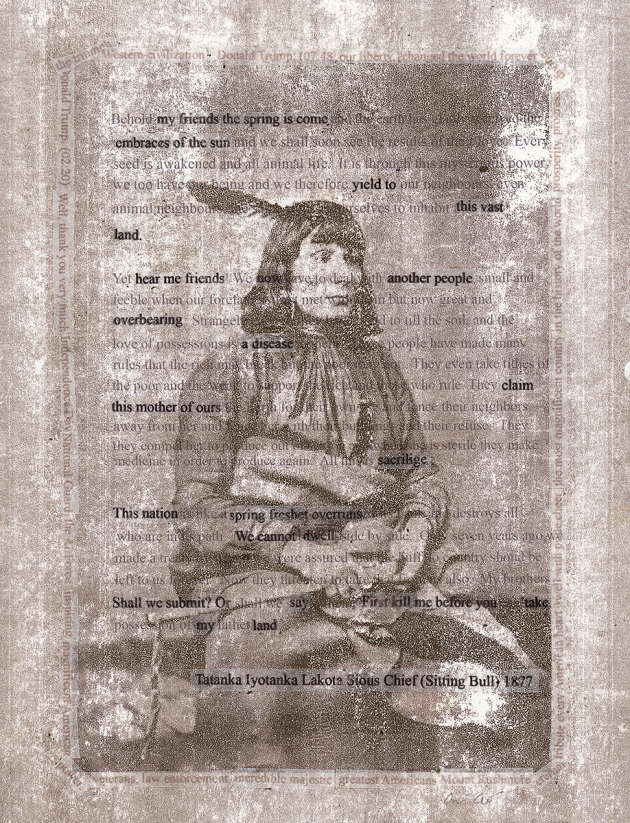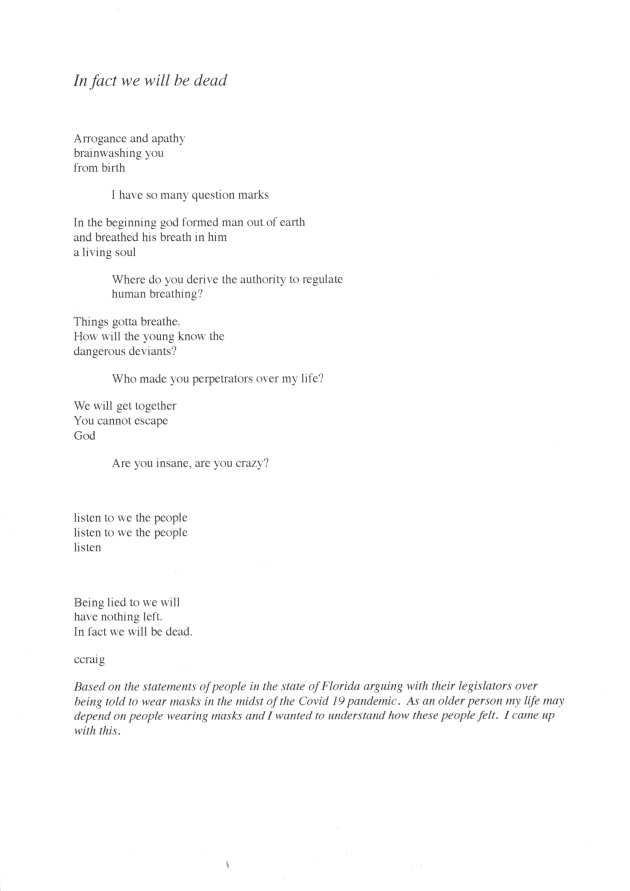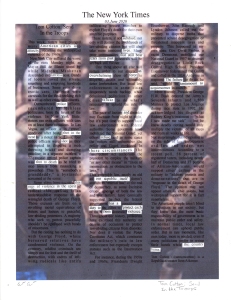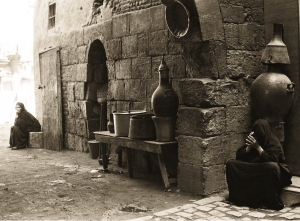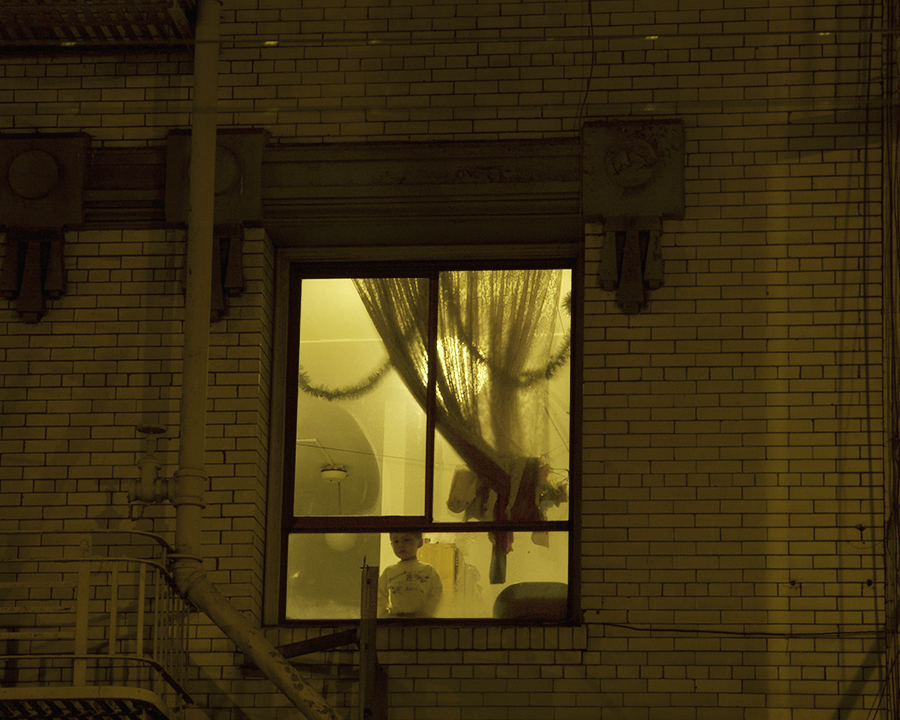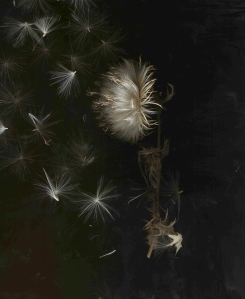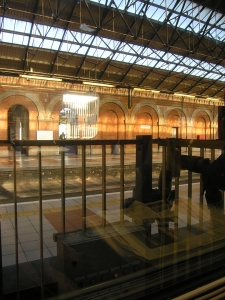
Connolly Station, 2007 c.craig
Things I didn’t know I loved
Nazim Hikmet (Turkish Poet 1902-1963)
it’s 1962 March 28th
I’m sitting by the window on the Prague-Berlin train
night is falling
I never knew I liked
night descending like a tired bird on a smoky wet plain
I don’t like
comparing nightfall to a tired bird
I didn’t know I loved the earth
can someone who hasn’t worked the earth love it
I’ve never worked the earth
it must be my only Platonic love
and here I’ve loved rivers all this time
whether motionless like this they curl skirting the hill
European hills crowned with chateaus
or whether stretched out flat as far as the eye can see
I know you can’t wash in the same river even once
I know the river will bring new lights you’ll never see
I know we live slightly longer than a horse but not nearly as long
as a crow
I know this has troubled people before
and will trouble those after me
I know all this has been said a thousand times before
and will be said after me
I didn’t know I loved the sky
cloudy or clear
the blue vault Andrei studied on his back at Borodino
in prison I translated both volumes of War and Peace
into Turkish
I hear voices
not from the blue vault but from the yard
the guards are beating someone again
I didn’t know I loved trees
bare beeches near Moscow in Peredelkino
they come upon me in winter noble and modest
beeches are Russian the way poplars are Turkish
“the poplars of Izmir
losing their leaves
. . .they call me The Knife. . .
lover like a young tree. . .
I blow stately mansions sky-high”
in the Ilgaz woods in 1920 I tied an embroidered linen handkerchief
to a pine bough for luck
I never knew I loved roads
even the asphalt kind
Vera’s behind the wheel we’re driving from Moscow to the Crimea
Koktebele
formerly “Goktepé ili” in Turkish
the two of us inside a closed box
the world flows past on both sides distant and mute
I was never so close to anyone in my life
bandits stopped me on the red road between Bolu and Gerede
when I was eighteen
apart from my life I didn’t have anything in the wagon they could
take
and at eighteen our lives are what we value least
I’ve written this somewhere before
wading through a dark muddy street I’m going to the shadow play
Ramazan night
a paper lantern leading the way
maybe nothing like this ever happened
maybe I read it somewhere an eight-year-old boy
going to the shadow play
Ramazan night in Istanbul holding his grandfather’s hand
his grandfather has on a fez and is wearing the fur coat
with a sable collar over his robe
and there’s a lantern in the servant’s hand
and I can’t contain myself for joy
flowers come to mind for some reason
poppies cactuses jonquils
in the jonquil garden in Kadikoy Istanbul I kissed Marika
fresh almonds on her breath
I was seventeen
my heart on a swing touched the sky
I didn’t know I loved flowers
friends sent me three red carnations in prison
I just remembered the stars
I love them too
whether I’m floored watching them from below
or whether I’m flying at their side
I have some questions for the cosmonauts
were the stars much bigger
did they look like huge jewels on black velvet
or apricots on orange
did you feel proud to get closer to the stars
I saw color photos of the cosmos in Ogonek magazine now don’t
be upset comrades but nonfigurative shall we say or abstract
well some of them looked just like such paintings which is to
say they were terribly figurative and concrete
my heart was in my mouth looking at them
they are our endless desire to grasp things
seeing them I could even think of death and not feel at all sad
I never knew I loved the cosmos
snow flashes in front of my eyes
both heavy wet steady snow and the dry whirling kind
I didn’t know I liked snow
I never knew I loved the sun
even when setting cherry-red as now
in Istanbul too it sometimes sets in postcard colors
but you aren’t about to paint it that way
I didn’t know I loved the sea
except the Sea of Azov
or how much
I didn’t know I loved clouds
whether I’m under or up above them
whether they look like giants or shaggy white beasts
moonlight the falsest the most languid the most petit-bourgeois
strikes me
I like it
I didn’t know I liked rain
whether it falls like a fine net or splatters against the glass my
heart leaves me tangled up in a net or trapped inside a drop
and takes off for uncharted countries I didn’t know I loved
rain but why did I suddenly discover all these passions sitting
by the window on the Prague-Berlin train
is it because I lit my sixth cigarette
one alone could kill me
is it because I’m half dead from thinking about someone back in
Moscow
her hair straw-blond eyelashes blue
the train plunges on through the pitch-black night
I never knew I liked the night pitch-black
sparks fly from the engine
I didn’t know I loved sparks
I didn’t know I loved so many things and I had to wait until sixty
to find it out sitting by the window on the Prague-Berlin train
watching the world disappear as if on a journey of no return
19 April 1962
Moscow
I lived in Turkey for a year. In Kadikoy, which is mentioned in the poem. I had planned to write a book on the women coming out of the former Soviet Union when communism converted to capitalism overnight and none of the average or the lowly had any capital. Some Soviets citizens went south, around the Black Sea to Turkey carrying whatever they could carry to sell in the markets of Istanbul.
What some of the women had were their bodies and they sold those. There were no pimps at that time, no violence that I heard about and no drugs. Though those things, I believe, came later. The women used the money they earned to buy small items to sell. They took these back north with them, not just to Russia, but to Ukraine, Bulgaria, Romania. They were capitalists in its most basic form.
I liked those women a lot. Sometimes their stories made me cry.
I liked Turkey a lot too. After Ireland, after Egypt where so many of my memories are linked to open, to public laughter, I had to get used to the fact that Turks did not share themselves on the streets. I found them, however, among the kindest people I had ever known. My Turkish was alway abysmal and I could never say more than good day and thank you to the vegetable seller across from where my daughter and I lived. But on the day my furniture was being moved in, he closed his stall and spent hours helping me get it up the four flights of stairs to my apartment.
I never did the book. Cholera and Typhoid were spreading, even ex-pats were getting them. There was no reliable vaccine against cholera and my daughter was only nine years old. The closest I got to my book was a small feature in the magazine Business Week for whom I wrote when I returned to Ireland.
I chose Nazim HIkmet’s poem because I love him as a poet and because sheltering in place is a kind of exile, a kind of loss. This poem seems to me to be a hymn to loss.
Nazim Hikmet Ran was born on January 15, 1902 in Salonika, Ottoman Empire (now Thessaloníki, Greece). In 1921, he went to Anatolia to take part in the war of independence. His interest in the October Revolution in Russia took him, to the USSR. Nâzım Hikmet returned to Turkey as a committed marxist. The poetry he now wrote reflected a new understanding and earned him great acclaim. Nâzım Hikmet was imprisoned many times because of his poetry. The last charges against him resulted in a 28 year prison sentence in 1938 for inciting mutiny in the navy. A campaign in support of Nâzım Hikmet’s innocence started in 1949 in protest of his imprisonment and created significant reverberations abroad. With the passing of a general amnesty in 1950, Nâzım Hikmet was released from prison. Following his acquital, Hikmet left the country because of political pressure . He was extradited from Turkish citizenship in 1951. He died in Moscow where lived until 1963. (edited from: https://www.nazimhikmet.org.tr/en/nazim-hikmet/biography/)


